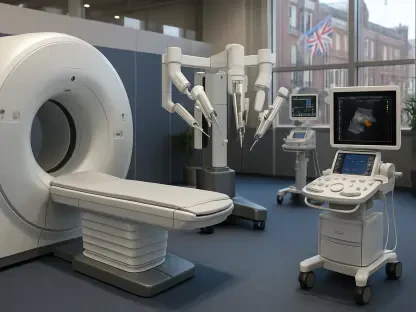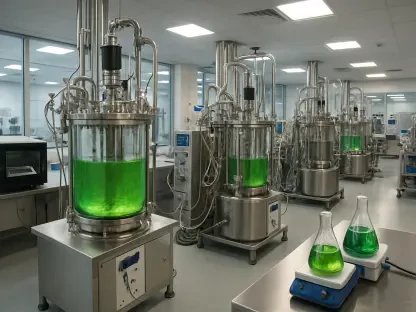A startling revelation has emerged from recent medical research, suggesting that the simple act of maintaining good oral hygiene could play a crucial role in reducing the risk of pancreatic cancer, a disease that stands as the third-leading cause of cancer-related deaths in the United States. With thousands of lives impacted annually, the urgency to uncover preventive measures for this often silent and deadly condition has never been greater. A groundbreaking study conducted by experts at New York University Langone Health and its Perlmutter Cancer Center has brought to light an unexpected connection between the health of the mouth and the likelihood of developing this severe illness. This discovery not only challenges conventional thinking about cancer risk factors but also emphasizes the broader implications of everyday habits on systemic health. As researchers delve deeper into this link, the findings could reshape approaches to prevention and early detection for a disease known for its challenging prognosis.
Unveiling the Connection Between Oral Health and Cancer
Microbial Clues in Saliva Samples
A comprehensive study published in the Oncology journal of the American Medical Association analyzed saliva samples from 122,000 Americans over an extended period, focusing on 445 individuals diagnosed with pancreatic cancer compared to an equal number of cancer-free participants. After adjusting for variables such as age, smoking habits, and race, the research uncovered a significant correlation between specific oral microbes and heightened cancer risk. Notably, 27 distinct microbes, including three bacteria tied to gum disease—P. gingivalis, E. nodatum, and P. micra—along with several fungi and additional bacteria, were associated with a risk increase of up to 3.5 times. This finding builds on previous observations linking poor oral health to other cancers, extending the scope to pancreatic cancer and highlighting the mouth as a potential indicator of broader health issues.
Fungal Factors in Tumor Development
Beyond bacteria, the study broke new ground by identifying oral fungi, particularly a yeast from the Candida genus, as a contributing factor in pancreatic cancer development. This yeast, commonly found on skin and within the body, was detected in pancreatic tumors, aligning with earlier research that connected fungi to tumor growth in both pancreatic and colorectal cancers. This marks the first time a direct link between oral fungi and this specific cancer has been established, offering a fresh perspective on the disease’s origins. The presence of such microorganisms in the mouth could serve as a critical clue for understanding how systemic conditions develop, pointing to the intricate interplay between seemingly unrelated parts of the body. As researchers continue to explore these microbial connections, the potential for new diagnostic tools becomes increasingly apparent.
Implications for Prevention and Early Detection
Everyday Habits as Protective Measures
The research underscores a vital message: maintaining good oral hygiene extends far beyond preventing gum disease and cavities—it may also act as a safeguard against life-threatening conditions like pancreatic cancer. Experts involved in the study, including Richard Hayes, DDS, PhD, from NYU’s Department of Population Health, stress that routine practices such as brushing teeth two to three times daily and flossing at least once a day could have profound health benefits. Additional recommendations from trusted health sources advocate for regular dental checkups and cleanings, alongside avoiding smoking, which poses risks for both oral health and cancer. These simple, actionable steps empower individuals to take control of their well-being, potentially reducing the likelihood of severe health outcomes through consistent daily care.
Advancements in Screening and Risk Assessment
One of the most promising aspects of this study lies in its potential to transform early detection strategies for pancreatic cancer, often dubbed a “silent killer” due to its lack of early symptoms. Jiyoung Ahn, PhD, a professor at NYU Grossman School of Medicine, suggests that profiling the bacterial and fungal populations in the mouth could help oncologists identify individuals at higher risk, prioritizing them for targeted screening. Such an approach could significantly improve outcomes for a disease with a historically poor prognosis by enabling earlier intervention. As medical technology advances, integrating oral microbiome analysis into routine health assessments might become a standard practice, offering a non-invasive way to monitor at-risk populations and tailor preventive measures accordingly. This innovative direction in cancer research holds the promise of saving countless lives through timely and informed medical responses.









